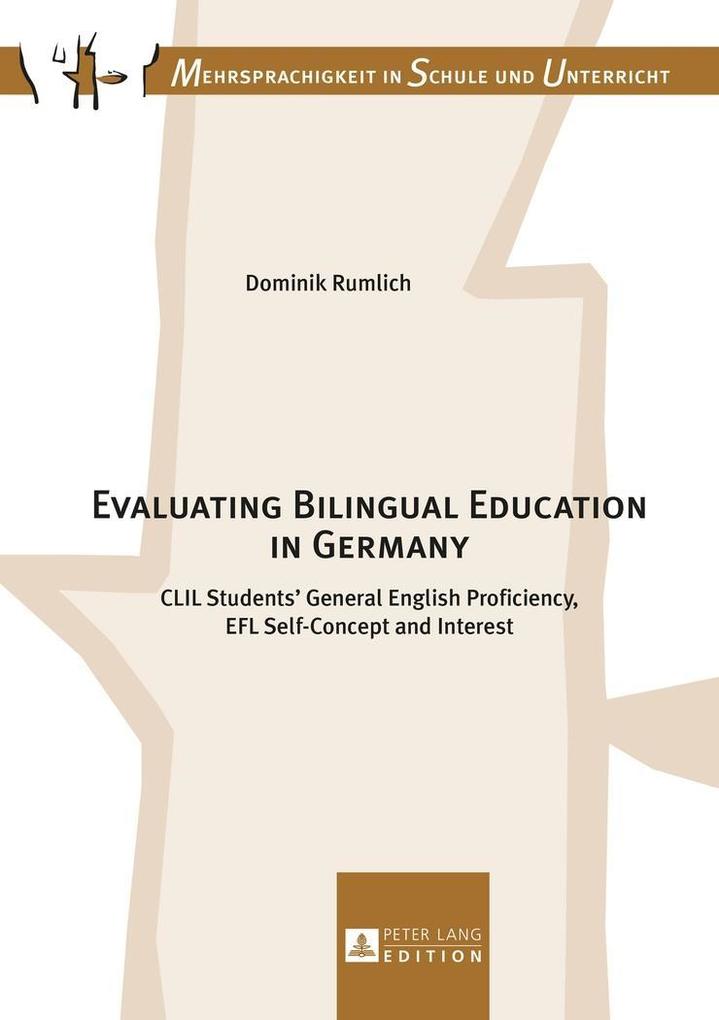
Zustellung: Mi, 02.07. - Sa, 05.07.
Versand in 1-2 Wochen
VersandkostenfreiBestellen & in Filiale abholen:
A quasi-experimental study on 1, 000 learners shows large initial differences between future CLIL and non-CLIL students due to selection and preparation effects. After two years, a model-based evaluation finds a small increase in EFL academic self-concept, but no CLIL-related benefits for general English proficiency or interest in EFL classes.
The author uses a theoretical account rooted in TEFL, language acquisition and educational psychology to provide the basis for the development of a comprehensive model of language learning in CLIL. It incorporates prior knowledge, EFL self-concept, interest in EFL classes, verbal cognitive abilities and contact to English. This model is used to estimate the effects of CLIL in the context of high-intensity programmes at German Gymnasien. The statistical evaluation of the quasi-experimental data from 1, 000 learners proves the existence of large initial differences due to selection, preparation and class composition effects. After two years, one finds no significant effects of CLIL apart from a minor increase in self-concept, suggesting that the actual effects of CLIL have often been overestimated.
Inhaltsverzeichnis
Conceptual and institutional background of CLIL - Theoretical background - Empirical findings from Germany - Research void, study design, (statistical) methods - A priori differences between CLIL, non-CLIL and regular students due to selection, preparation, and class composition (year 6) - The effects of CLIL and non-CLIL environments on general EFL proficiency, EFL ASC, and interest in EFL classes (year 8) - Future perspectives.
Produktdetails
Erscheinungsdatum
25. Juli 2016
Sprache
englisch
Seitenanzahl
582
Reihe
Mehrsprachigkeit in Schule und Unterricht
Autor/Autorin
Dominik Rumlich
Herausgegeben von
Stephan Breidbach
Verlag/Hersteller
Produktart
gebunden
Abbildungen
96 Abb.
Gewicht
820 g
Größe (L/B/H)
214/173/41 mm
ISBN
9783631671290
Entdecken Sie mehr
Pressestimmen
«This book has earned its place on the reading list for all young CLIL researchers, and the questions it raises definitely point the way for future research of both a quantitative and a qualitative nature.»
(Ruth Breeze, Estudios sobre Educación 34/2018)
(Ruth Breeze, Estudios sobre Educación 34/2018)
Bewertungen
0 Bewertungen
Es wurden noch keine Bewertungen abgegeben. Schreiben Sie die erste Bewertung zu "Evaluating Bilingual Education in Germany" und helfen Sie damit anderen bei der Kaufentscheidung.









